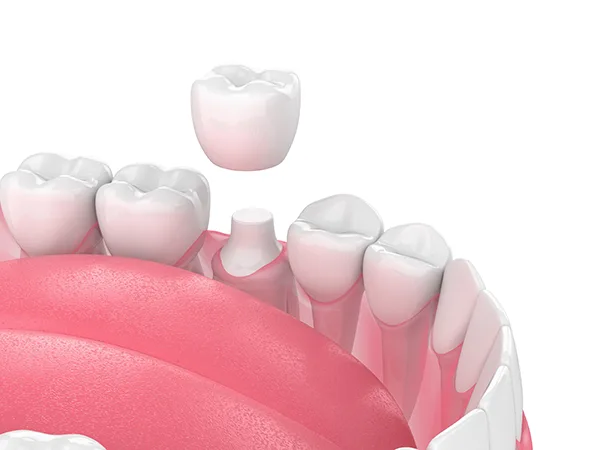Dental Implant vs Crown - What's the Difference?
Posted on 5/15/2025 by Surprise Oral & Implant Surgery |
 Have you been told you need a crown or an implant? You're not alone. Many people face tooth loss and require restorative dentistry. But with all the options available, it can be hard to know which is right for you. Have you been told you need a crown or an implant? You're not alone. Many people face tooth loss and require restorative dentistry. But with all the options available, it can be hard to know which is right for you.
So, let's break down the two most common choices: crowns and dental implants.
What is a Crown?
A crown is a cap that fits over your damaged tooth, restoring its shape, size, and function. Think of it like a helmet for your tooth. Crowns are typically used for teeth that have been weakened by:
| • |
Decay: When cavities are large or extensive, they can leave your tooth vulnerable. |
| • |
Fracture: If your tooth has cracked or chipped, a crown can protect it from further damage. |
| • |
Root canal: After a root canal, your tooth becomes brittle and needs a crown for added strength. |
Crowns come in various materials, including porcelain, metal, or a combination of both. Your dentist will help you choose the best material for your needs and budget.
What is a Dental Implant?
A dental implant is a small titanium post surgically placed in your jawbone, acting as an artificial tooth root. Over time, the bone fuses with the implant, creating a strong foundation for a crown. This makes implants the closest you can get to having a natural tooth.
Implants offer several advantages over crowns:
| • |
Preserves bone: Crowns only cover the tooth, while implants stimulate bone growth, preventing bone loss. |
| • |
Long-lasting: With proper care, implants can last a lifetime, while crowns may need to be replaced after 10-15 years. |
| • |
Improved function: Implants function more like natural teeth, allowing you to bite and chew with greater force and confidence. |
Which is Right for You?
The best choice for you depends on several factors, including the condition of your tooth, your overall oral health, and your budget.
Crowns are a good option if:
| • |
Your tooth is structurally sound but needs protection or restoration. |
| • |
You have enough remaining tooth structure to support a crown. |
| • |
You are on a tighter budget. |
Implants are a good option if:
| • |
You have lost a tooth or need an extraction. |
| • |
You want a long-lasting, natural-looking solution. |
| • |
You are willing to invest in your oral health. |
Ultimately, the best way to decide which option is right for you is to talk to your dentist. They can assess your individual needs and recommend the best course of treatment.
Key Considerations
Remember, each option has its pros and cons. Consider these factors when making your decision:
| • |
Cost: Crowns are typically more affordable than implants. |
| • |
Procedure: Crowns require less invasive procedures compared to implants, which involve surgery. |
| • |
Durability: Implants are more durable and last longer than crowns. |
| • |
Maintenance: Both crowns and implants require good oral hygiene and regular dental checkups. |
Don't Delay Your Dental Care
If you are facing tooth loss or damage, don't wait to seek treatment. Talk to your dentist about your options and find the best solution for your needs and budget. Remember, good oral health is essential for your overall well-being, so don't neglect it. |
|
